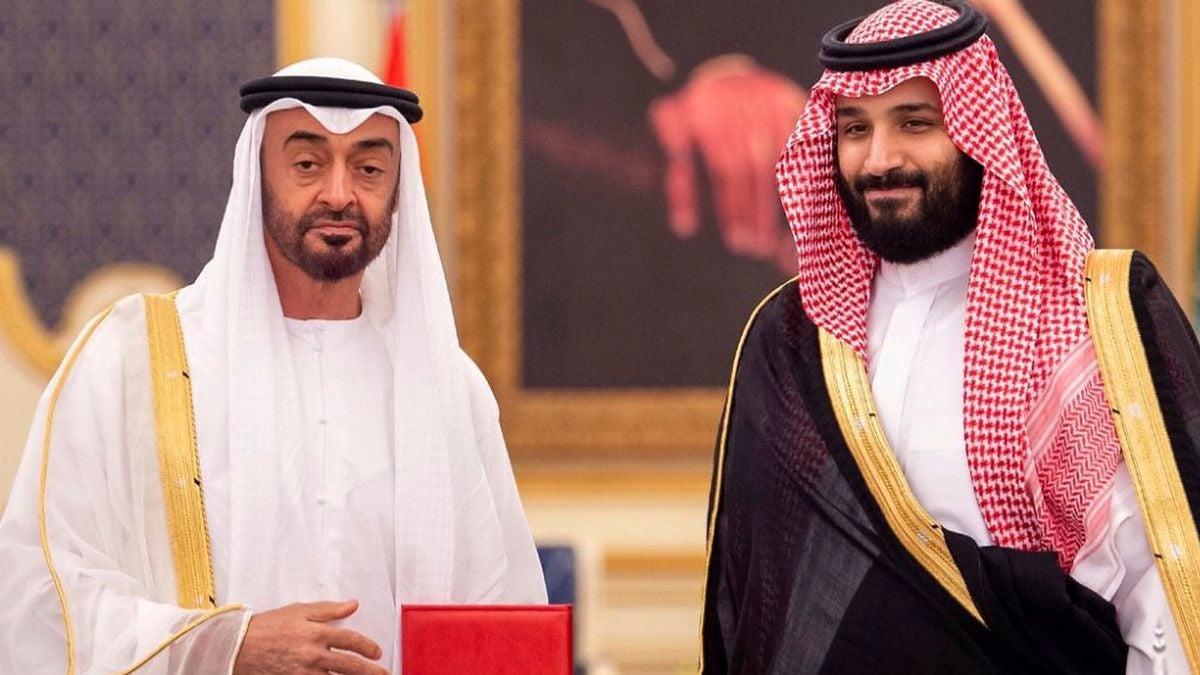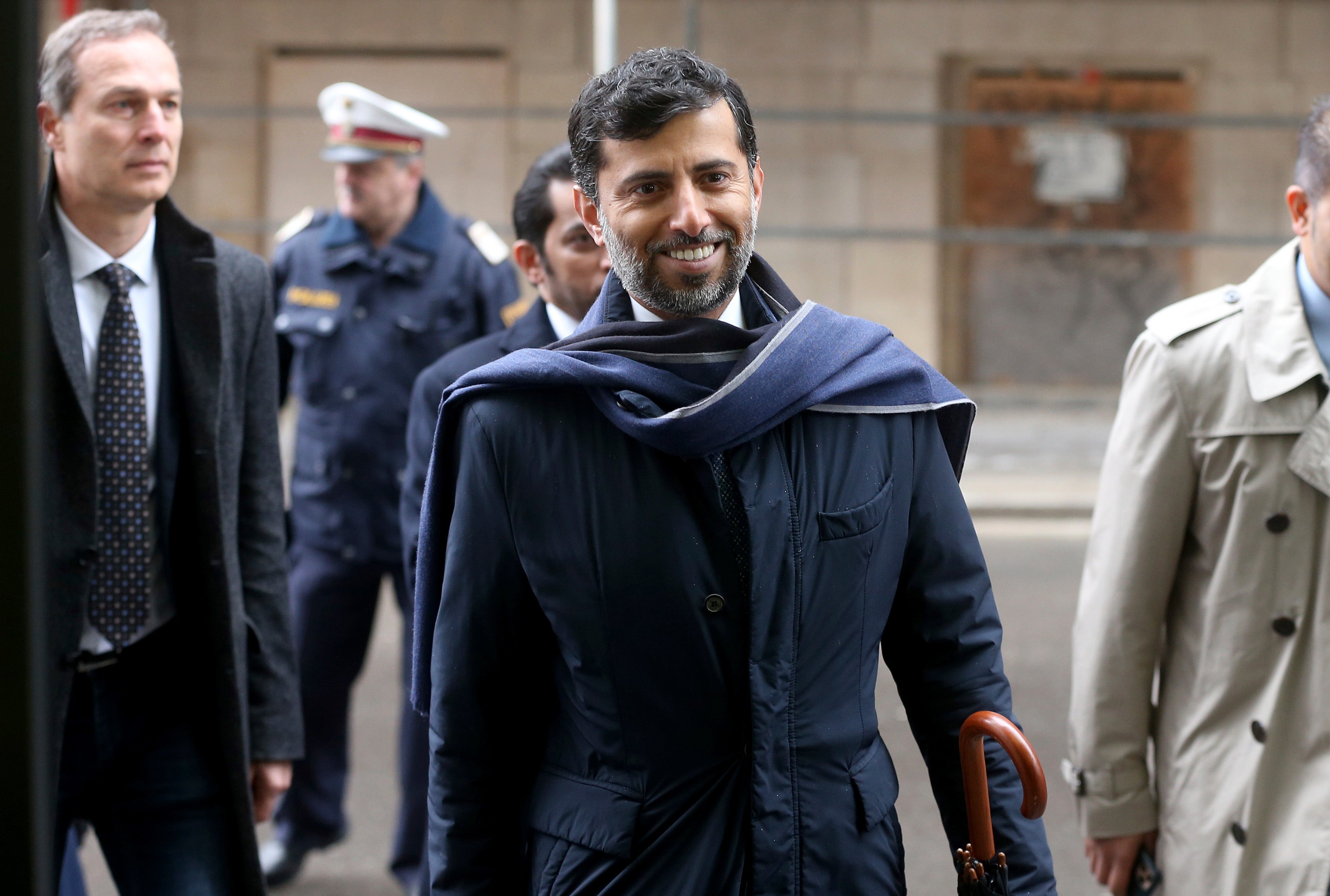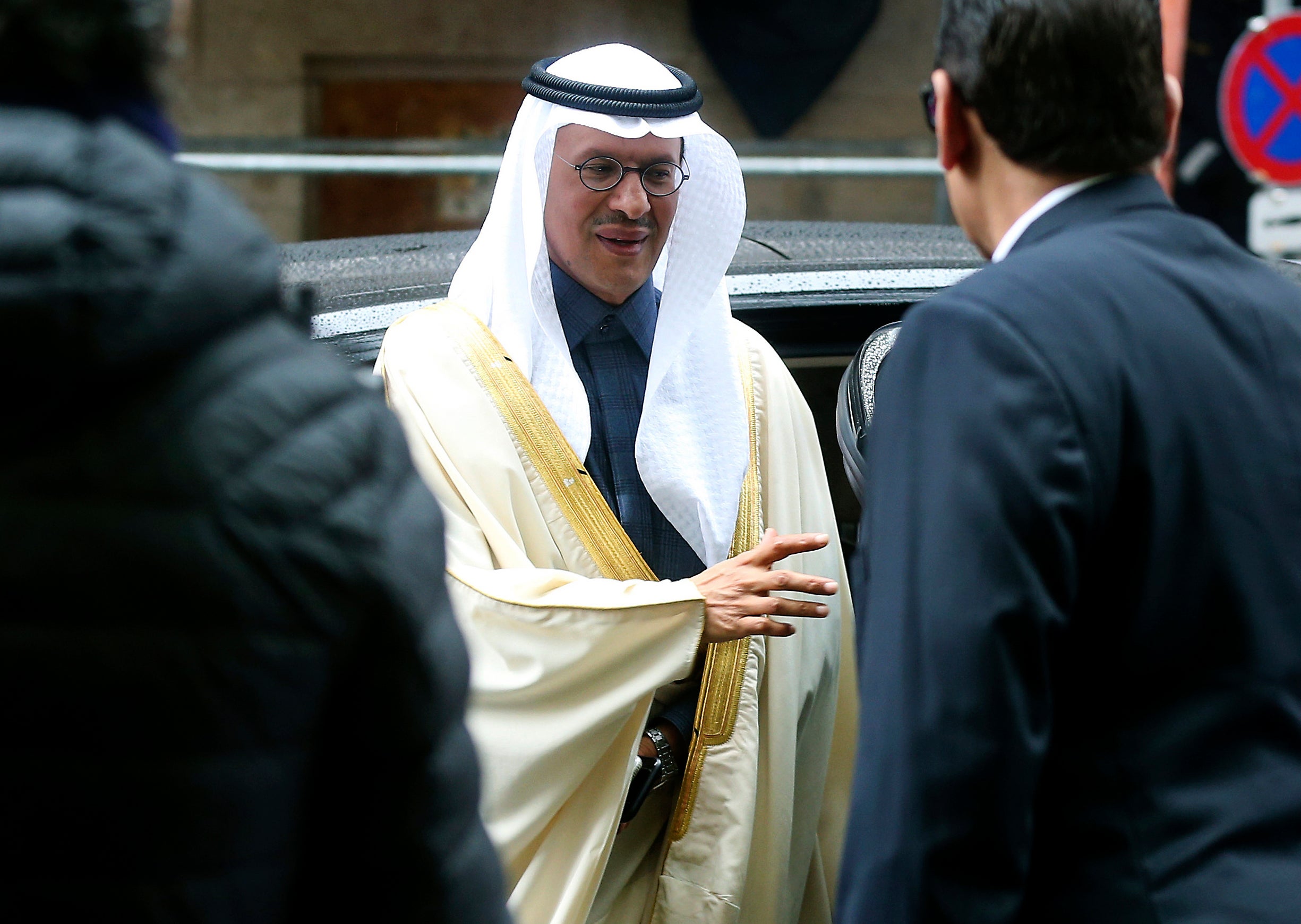With friends like these: Gulf powers Saudi and UAE clash over oil and strategy as rivalry grows
Tensions between the two countries have been increasing for some time

Your support helps us to tell the story
From reproductive rights to climate change to Big Tech, The Independent is on the ground when the story is developing. Whether it's investigating the financials of Elon Musk's pro-Trump PAC or producing our latest documentary, 'The A Word', which shines a light on the American women fighting for reproductive rights, we know how important it is to parse out the facts from the messaging.
At such a critical moment in US history, we need reporters on the ground. Your donation allows us to keep sending journalists to speak to both sides of the story.
The Independent is trusted by Americans across the entire political spectrum. And unlike many other quality news outlets, we choose not to lock Americans out of our reporting and analysis with paywalls. We believe quality journalism should be available to everyone, paid for by those who can afford it.
Your support makes all the difference.They were the brash power couple of the Arabian Peninsula, partnered up in joint efforts against regional rivals including Iran, Qatar and Turkey, and ideological foes such as the Muslim Brotherhood organisation.
In recent months, however, the relationship between Saudi Arabia and the United Arab Emirates has taken a turn for the worse, with relations fraying over differing stances on Yemen, oil production and broader geopolitical calculations triggered by the new administration in Washington.
Late on Sunday, citing concerns over the coronavirus, Saudi Arabia suspended all flights with the UAE, just days after the two countries found themselves embroiled in a dispute about oil production. On Monday, Saudi Arabia changed its rules on imports from other Gulf countries to exclude goods made in free zones or with any Israeli product, in a direct challenge to the UAE’s status as a regional trade hub.
While the official Saudi press agency said the suspension of flights from the UAE was due to “the ongoing outbreak of coronavirus pandemic and the spread of a new mutated strain of the virus”, analysts said other factors were at play.
“The tensions between Saudi Arabia and the UAE have been growing for a long time,” said Cinzia Bianco, a research fellow at the European Council of Foreign Relations. “The two players are reassessing the balance of power in their bilateral relationship as it applies to the regional and international scene.”
For years, the Saudi crown prince, Mohammed bin Salman, and his Emirati counterpart, Mohammed bin Zayed, were seen as modernising visionaries for the Middle East, both staunchly pro-American autocrats cooperating on a number of strategic and economic fronts.
They also have arguably outsized and conflicting ambitions for their nations, and the potential for rivalry was always just beneath the surface.
Both nations are rushing to build up their stores of advanced weaponry, and are among the leading purchasers of arms worldwide, occasionally seeming to try to top each other with access to the latest tools of war. Both try to outdo each other in gaining access to the corridors of power in Washington.
While both see the Muslim Brotherhood, the Islamist political network hosted by Turkey and Qatar, as a menace, there have always been major divergences.
Saudi Arabia never fully signed up to the view of the group as an existential and ideological threat the way that the UAE sees it. In fact, like many Middle Eastern capitals, Riyadh regards the Brotherhood’s Yemeni, Syrian, and Palestinian offshoots as essential to any settlements of the conflicts in those countries.
Prince Mohammed, often known as MBS, is rushing to shore up his diplomatic credentials as he prepares to ascend to the leadership of the kingdom. In recent months, he has begun to patch up relations with Turkey as well as Qatar, and has improved ties with Oman, which has always charted its own course within the six-member Gulf Cooperation Council, the bloc of wealthy Arabian Peninsula states.

“MBS is seeking to be on the throne and needs to lower tensions with everyone around him,” said Theodore Karasik of Gulf State Analytics, a Washington consultancy. “MBS is going to be king, and needs to settle accounts in order to reboot his country in this new atmosphere.”
Gulf watchers say that a major source of the conflict is that the UAE sees itself as a peer competitor to Saudi Arabia rather than as a junior partner. In some ways, that mirrors the tensions that eventually erupted between Saudi Arabia and Qatar in 2017, prompting a three-year-long blockade of the country.
“The relationship between the Gulf states is shifting and Abu Dhabi is being eclipsed,” said Mr Karasik.
At the Organisation of the Petroleum Exporting Countries (Opec), the UAE opposes production quotas negotiated between Russia and Saudi Arabia and wants to be able to produce 3.8 million barrels a day rather than 3.2 million as apportioned by the oil cartel.
Neither Saudi Arabia nor the UAE appear ready to back down.
“The UAE feels they have been treated unfairly,” said Ms Bianco. “They want to be able to produce more because they need more of the resources that come out of the export of that oil to fund a bunch of strategies that are both economic and geopolitical.”
In Yemen, while the two countries originally intervened side by side to oppose the Iranian-backed Houthi militia’s takeover of the capital and much of the country’s north, they now support opposing sides in the south of the country. Abu Dhabi backs the separatist-minded Southern Transitional Council, while Riyadh supports the UN-recognised government of Abdrabbuh Mansur Hadi.
Gulf watchers say the disputes over oil production and Yemen were manageable, and that it was mostly likely the change in power in Washington that brought the dispute between the two countries into plain public view.
Both countries enjoyed privileged access to the administration of Donald Trump, who apparently admired the Gulf monarchies’ glitz, conspicuous consumption and autocratic ways. Their main conduit was Jared Kushner, Mr Trump’s son-in-law, who brokered the Abraham Accords normalising relations between the UAE and Israel, an agreement that upstaged Saudi and likely led to tensions.
“At the core, the relationship between Saudi Arabia and the UAE has been a leadership-to-leadership relationship, about the ability of the UAE leadership to introduce Mohammed bin Salman to the highest and most important rooms in the United States,” said Ms Bianco.

“With Trump gone and Kushner gone and Biden there, this has brought into question the founding element of the leadership-to-leadership relationship.”
Despite the tensions, analysts say the relationship is far from doomed, even though ties have become increasingly delicate.
“Regional competition between Gulf countries have developed recently as Saudi Arabia and the UAE are trying to attract foreign investors and talents,” said Eman Alhussein, at the Arab Gulf States Institute in Washington. “However, Saudi Arabia and the UAE still maintain cooperation in different areas. Gulf countries are learning to live with their differences.”
Join our commenting forum
Join thought-provoking conversations, follow other Independent readers and see their replies
Comments